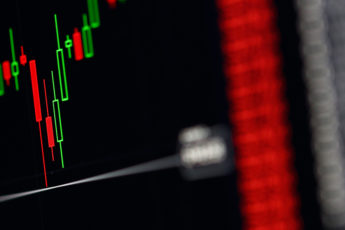There are many skills and characteristics that traders need in order for them to trade the financial markets successfully. The ability to understand market structure, price movements and determining the trend are all key traits. But not one of them are as important and strong discipline and emotional control.
Understanding fear
When stocks are bleeding and more bad news is released regarding the market, it is common for a trader to be fearful. Fear can cause an overreaction and cause traders to liquidate their positions. They could even go so far as to refrain from taking any further risks. If they do that they might avoid certain losses. The other fact is that they are likely to miss out on huge opportunities.
Fear is a natural reaction to what is perceived as a threat. Traders need to understand fear. Perhaps they feel that their profit or the potential to make money might be threatened. Once they understand their fear and “the why”, then they can better deal with it.
Thinking ahead and knowing how they may instinctively react or perceive things can provide an opportunity to separate those feelings during trading. Focusing to move past emotion may not be easy and it may take time to master but it’s an absolute necessity for the health and performance of an investment.
Greed is the enemy
The Wall street saying “pigs get slaughtered” stands true to this day. Greed causes investors to hang on to winning positions for too long (not following their trading plan) as they try to get every single pip. This can have a serious negative impact because the risk is always there to get blown out of a position.
It can be difficult to overcome greed because of our nature to always want to do better. Developing a trading plan based on rational decision making to counter this instinct is a good foundation to build on.
Trading rules
Create trading rules to get into the right head space before feeling the emotional crunch. Establish limits where you can lay out guidelines based on your risk to reward relationship for when you exit a trade – regardless of emotions. A simple example: if a security is trading at $20 a share, the trader might want to get out at 20.50, or to place a stop loss order at 19.75
Setting up price targets is not the only technique . A trader can for example decide to sell a security if high impact news or a macroeconomic news event comes out. On the other hand if it appears that a large player enters the market , the trader might be inclined to get out.
Some traders like to set limits on the daily amounts that they win or lose. In basic terms if x amount of profit is reached, then call it a day. Alternatively if x amount has been lost, to stop and return again the next day to start over.
In my first trading course that I attended at the world trade center, I was taught the concept of “take the money”. The above works because I know where my limits are then I take the money and run when those limits are reached.

Trading psychology
Create a trading plan
Investors try to be as knowledgeable as possible in their fields of interest. For example, Warren might enjoy trading Boeing stocks. So it would be ideal for him to be up to speed with the aviation industry and have proper listening channels in place to get big news as quick as possible.
To best achieve the above investors formulate a plan to get properly educated in that respect. In addition to this, it would add value to the process to set aside time to research enough to stay informed with the current trends. This can include things like following the news, reading the financial journals and following well versed economists. All of this background work can gather a wealth of knowledge that can help overcome fear and doubt.
Things are always evolving, ever changing. For this reason it is good to try out and test new things from time to time. Some of the best techniques and secrets have been discovered through testing and experimenting with ideas. Reducing risk on opening trades or running trades or reducing the absolute draw down are usually areas with a lot of activity and testing to work on improvements.
Great benefit can be gained from reviewing performance and processes to find weak areas and things that can be improved. Review positions, the processes that got you into the trade and other influencing factors that will give you a good picture of how your trading is approached and executed. Simple reviews can bear amazing fruits as you are able to correct mistakes and learn more about what works to apply going forward. Once the performance and returns do better, the mindset will automatically follow suit. This is a great way to prepare for trading sessions and stay informed.
In closing
It is important for investors to be able to read charts and have the right technology at his/her disposal to have trades executed. There is a psychological component that needs to be included into the process so setting a trading plan, doing research and experience are steps that can help keep it “mind over matter”.


